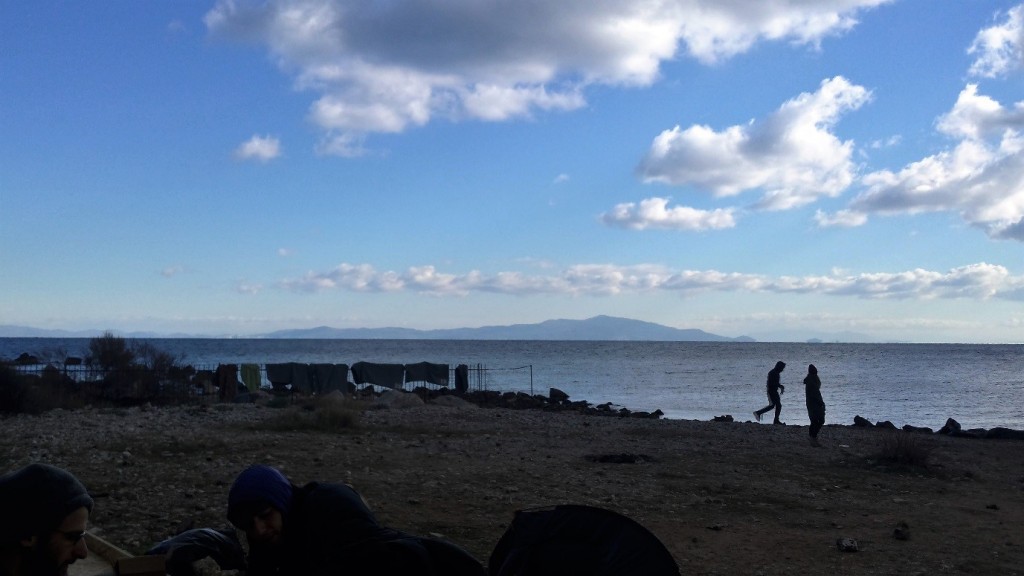
“There are people out there who are suffering and there’s very little they can do about it”…“Sometimes I feel guilty when I’m happy because I know that these people are hurting. How can I be happy when I know that people are being forced to live in refugee camps and ghettos, while women are being sex trafficked and millions of innocent people are suffering? So as I sit here and look at my life, I feel grateful, but I also feel confused.”
– Stephen Swartz author of Crossfire
Once I got to Lesvos, Silvia tells me, ‘Everyone is taking a break today’. There had been a storm the previous night, which had destroyed the tents and soaked everything. Everyone’s mood was down, so we decided to down a couple of Ouzu shots – the best alcohol to go with Chamomile tea and honey as I found out later that night. Seeing all your work getting destroyed was not easy but getting there on such day made it possible for me to get to know everyone. I got to talk with Dervla, this cool motivational Irish lady which gave me great advice. Silvia, the star of the falafel group, and I got some sober drinks and talked, the mood was starting to go up. I got some very good advice from Andreas our Greek man on how to help when the boats arrive. I then met Dani, a 30 year old cool metal head Syrian newcomer who is also a tattoo artist as well as a volunteer in Lesvos. Soon enough I started making connections and sharing experiences. The same situation was being lived differently by different people. We were sharing moments and having fun while going through chaos.
Although it did not become evident to me at first, a lot of the people were involved politically which is crucial but I came to realise that this ‘stand’, if not done pragmatically, can collide or even work against the humanization and the solidarity that is so needed given the circumstances.
Leo had sign me in for the Lunch Shift. I did a bit of everything: cooking, sorting out clothes and just get to know people. I had the chance to put my French to test.
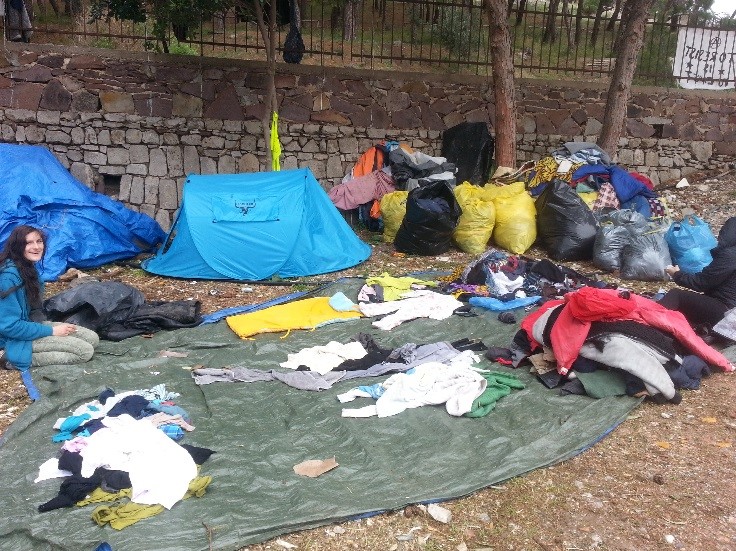
The clothing tent was extraordinarily difficult to manage; we had to sort out clothes and separate wet from dry from dirty as well as men’s from women’s from children. Socks had to be pinned together into groups of 3 pairs. Omaira, Ella and I spent the day sorting these out into bags to be sent to the ‘Dirty Girls’. The Dirty Girls are a group of women which gather most clothing from the camps, wash it, dry it and send it back to the warehouse which will then be distributed to all the camps across the island on list of demands made by each camp. Camps would cooperate with each other alot of generous donations came from locals. However chaotic the situation was … somehow things seemed to be working out.
After a while I started making all the shifts for the Clothing tent. A major issue was the fact that the tent had been damaged from the storm thus clothes had gotten wet. On top of this, we had stray dogs coming in and out leaving that wonderful dog smell on the clothes and blankets. I took on the task of sorting things out, fixing the tent and put the clothes on the top shelves for limited and practically impossible canine access.
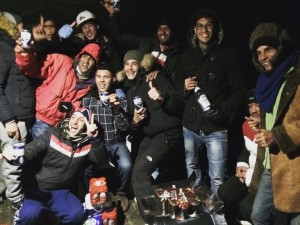
Soon, I had my two habibis, Mohamed and Mohamed Saeed helping me out in the tent. As the camp, at the time, was mostly made up of sassy young men with a great sense of fashion they were the most appropriate to help. Mohamed and Mohamed Saeed were Algerian, both with beautiful brown eyes always down to help out and make jokes amongst us with broken French, Arabic and English. Malik joined us a couple of times and he was so tired one day Ella found him sleeping like a baby in the blanket tent. Chiara joined us later on and she was by far the greatest contributor to this task, always motivated and focused.
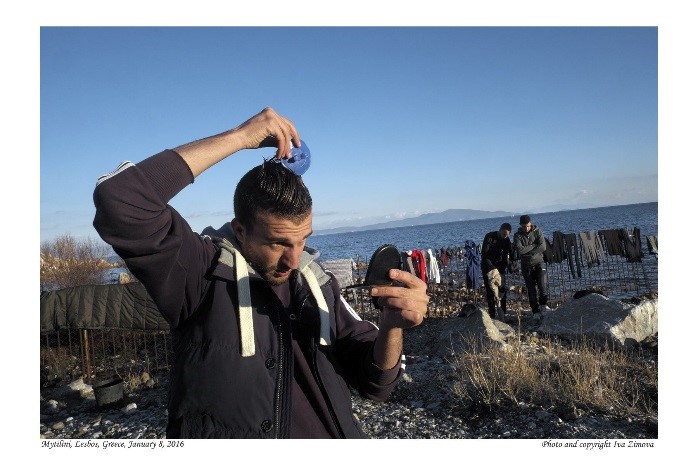
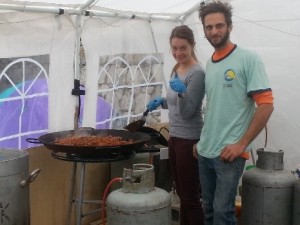
Meanwhile in the kitchen Silvia, Jeremy, Riki and Lulu kept busy making vegan food and distributing it. Leo and Louis kept fixing bits and pieces of the structure they had started to build in the previous weeks. Together with the help of Riki and Jacopo they started expanding and reinforcing the existing structures by using some reclaimed wooden pallets and covers recycled from the rafts and from some donations of the UNHCR. At this point Pierre was developing his project in the Greek man’s workshop.
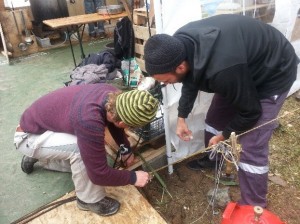
The collaborative spirit between volunteers and newcomers was a great thing to be part of. All these men and women put their muscles and brains to good use and helped Leo and Louis building the front reinforced cover for the kitchen. Men have just as many collaborative and multitasking skills as women do. I got to meet the most awesome male feminists and they took over the role of helping in the kitchen, cooking delicious things for everyone and making great contributions towards the construction of infrastructure.
I was told I reminded someone of their mother, I could see how much he must have missed her. I got some speakers and we got a party going and interestingly enough I found out that I wasn’t the only one to obsess over Kuduro from Angola, which was so refreshing since no one around here seems to know what it was. Everyone gathered in front of the kitchen listening to some Arabic or Portuguese lyric music, it was great. At some point the music stopped and someone had taken the portable charging device from the speakers. Surely they will give it much more use than I ever would!
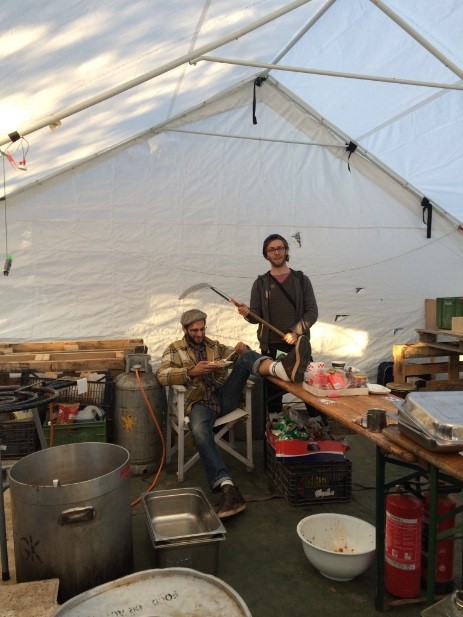
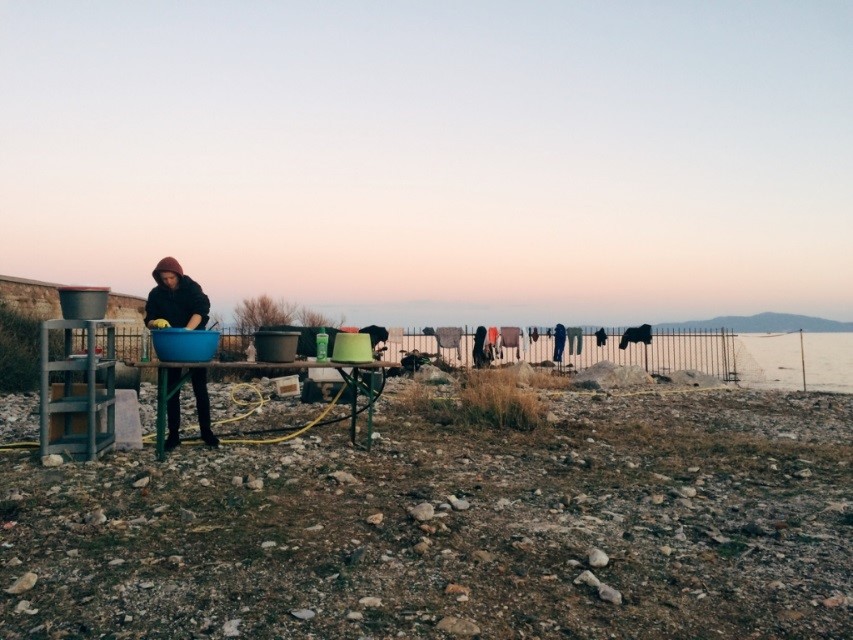
The collaboration in the building and management of the spaces was crucial in order to engage in conversation with the refugees instead of distancing volunteers from refugees. The political engagement of some of the volunteers we partnered up with was, for me, too extreme and not useful. Having had to spend hours and hours in meetings where my voice was ignored was frustrating as I would much rather be outside looking at the stars and dancing with the rest of the people. Our over politicized meetings sounded to the people outside like a ‘football match between Barcelona and Real Madrid’ – a quote from Malik’s friend.
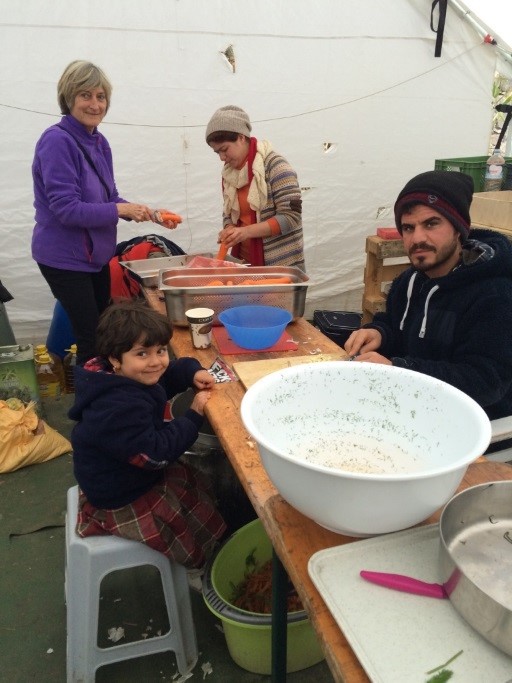
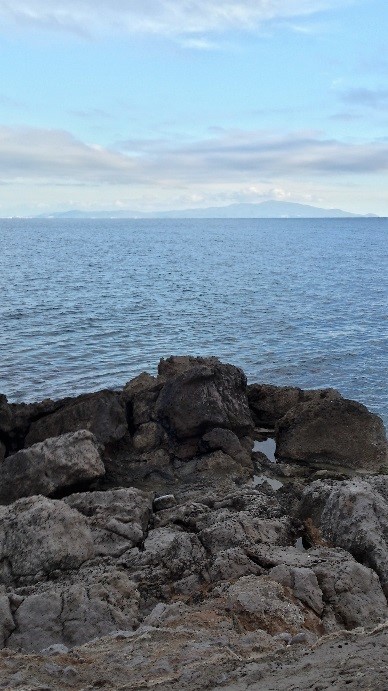
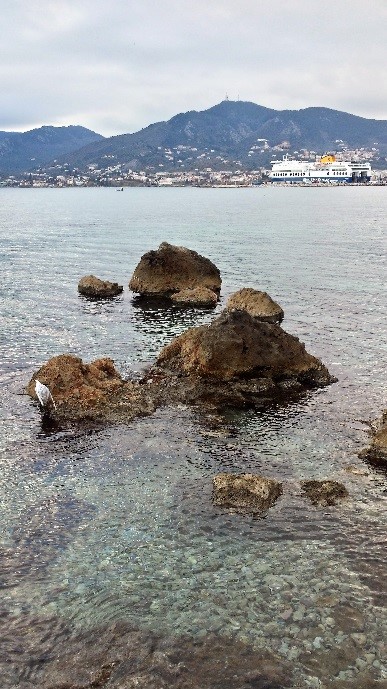
Although the camp was managed throughout the day with the collaboration of everyone, for some reason only on one occasion did we have one of the newcomers present, the most linguistically intelligent young men I have met – Abdul. Abdul spoke Spanish, Arabic, Italian, French and English and he was a peace maker trying to help everyone, he translated so much for us! His voice and that of some of the other newcomers had not been heard during the meeting which infuriated me. It seemed to me that some people we had partnered up with had good intentions yet their blindness led them to make wrong decisions. Decisions that contradicted their own beliefs of freedom and of kindness, and obviously put everyone else at risk.
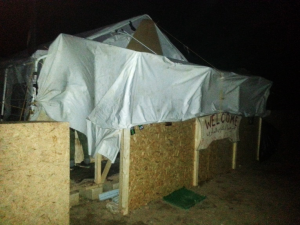
When the next storm was brewing Abdul said to me, ‘As long as we have dry clothes and blankets to change to in the morning we will be fine.’ This seemed reasonable to me, yet some people decided to take some of the migrants, who had not get registered, to a ‘safer place’ – the hospital. One of the nurses had to inform the police and let’s just say that had they not had their hands full at the time they could have gotten those people into big trouble. Some guy also said, ‘Why would I go to the hospital and sit if I can lay down here?’ Indeed why would you sit inside a building that stinks of death when you can lay down outside looking at the stars and at the views.
It seems to me that some volunteers were only interested on being the ‘good guy’. Being a rebel, an activist and a volunteer has become trendy and ‘cool’. Going along and accepting all rules can be damaging, yet rebelling against them for the purpose of being a rebel can be even worse, and in all honesty, stupid.
The original definition of ‘Hero’ in ancient Greece, and for Brazilians, is that of someone who has the great ability to get themselves into a lot of trouble and get out of it in the most possible ‘badass’ way, that is pragmatically and ‘in the moment’. The two examples of real Heroes I know of is Ulysses (Greek) and Macunaima (Brazilian) and yes those young men (refugees) are the one and only real authentic definition of Hero, the volunteers are nothing but the secondary characters of each and every Odyssey of those heroes.
By Luisa Pereira Pires, Stage 3
